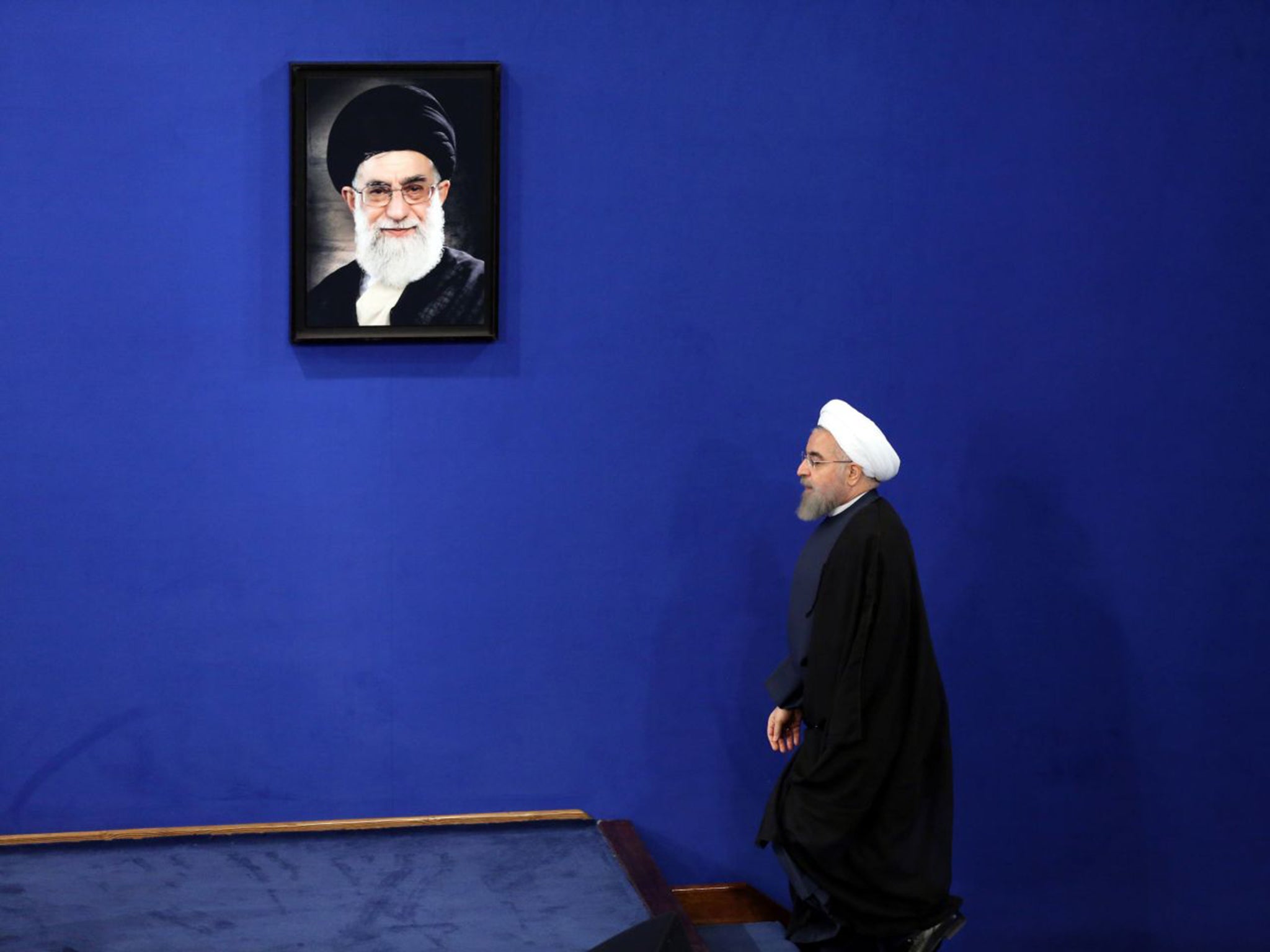Iran nuclear deal could help relations with US - if they apologise for past behaviour, says President Rouhani
The two nations severed ties shortly after the 1979 Islamic revolution, when radical students seized the US embassy in Tehran and held 52 Americans hostage for more than a year

The nuclear deal reached between world powers and Iran could lead to better relations between Tehran and Washington if the United States apologised for past behaviour, the Iranian President, Hassan Rouhani, was quoted as saying.
The pragmatist President, who championed the 14 July deal, has pushed for closer engagement with the West since his landslide election victory in 2013.
But Iran’s top authority, Supreme Leader Ayatollah Ali Khamenei, has continued to rule out normalising ties with the “Great Satan”, as he routinely calls the US.
In an interview with Italy’s Corriere della Sera newspaper, Mr Rouhani suggested the US and Iran could open embassies in each other’s capitals after decades of mutual hostility, but said, without going into detail, that Washington should first apologise.
“One day these embassies will re-open but what counts is behaviour and the Americans hold the key to this,” Mr Rouhani told the newspaper before a trip to Italy this weekend, his first to a European capital.
“If they modify their policies, correct errors committed in these 37 years and apologise to the Iranian people, the situation will change and good things can happen.”
Iran and Washington severed ties shortly after the 1979 Islamic revolution, when radical students seized the US embassy in Tehran and held 52 Americans hostage for more than a year. Over the past decade, Iran’s nuclear ambitions have strained relations further. Under the nuclear deal reached in July, Iran will curb its nuclear programme in exchange for an easing of sanctions on its economy. Tehran denied wanting to develop an atomic bomb.
Ayatollah Khamenei, who has the final say on all state matters, gave his conditional approval to the deal with six world powers, including the United States, but he has warned against allowing any US political or economic influence on Iran.
The way this agreement is applied can have an impact on the future
Mr Rouhani said Washington would have to fulfil its part in the nuclear accord for relations to improve.
The US approved conditional waivers on sanctions against Iran, although these will not take effect until Tehran has complied with the nuclear accord.
“The way this agreement is applied can have an impact on the future,” Mr Rouhani said in the interview.
“If it is well applied it can lay the foundation for fewer tensions with the United States, creating the conditions to open a new era. But if the Americans don’t respect their part of the nuclear accord, then surely our relationship will remain as it has been in the past,” he said.
Mr Rouhani is due to meet the Italian Prime Minister, Matteo Renzi, and business leaders during his weekend visit to Rome and will also hold talks with Pope Francis. He will then fly to Paris for talks early next week.
Reuters
Join our commenting forum
Join thought-provoking conversations, follow other Independent readers and see their replies
Comments
Bookmark popover
Removed from bookmarks